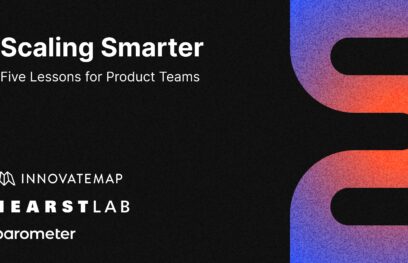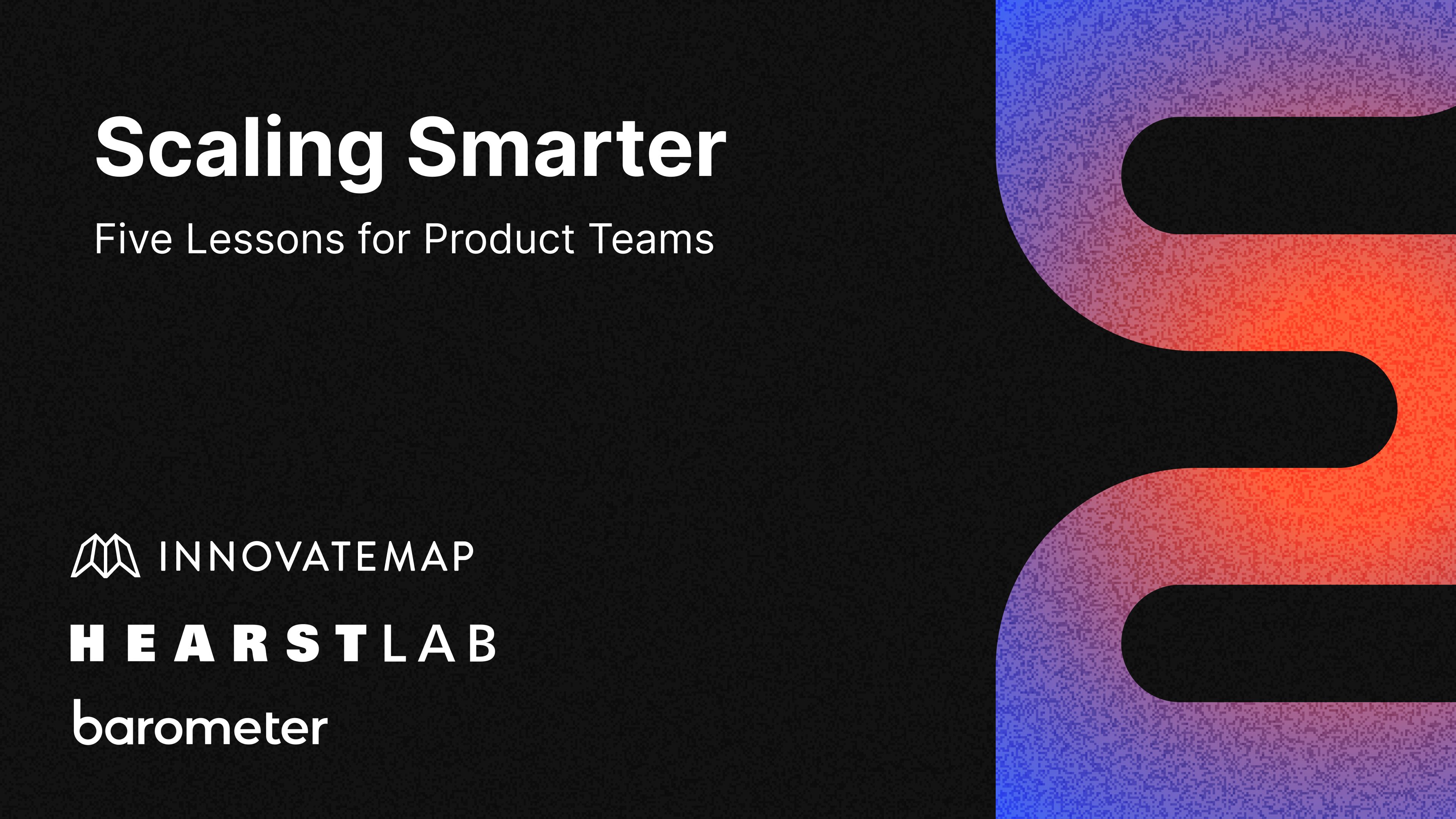
Go-to-Market , Product Strategy — 08.06.2025
From Traction to Scale: Five Lessons for Early-Stage Product Teams
Chelsea Douglass, Director of Marketing

When your product starts gaining traction, it’s easy to think you’ve made it. But what comes next, scaling the right way, is where many early-stage teams get stuck.
Innovatemap partnered with HearstLab for a lunch and learn in NYC where Jake Trowbridge and Ashley King joined Tamara Zubatiy, CEO and Co-founder at Barometer, to share what it really takes to turn momentum into a product that scales.
Here are the highlights:
1. Start small. Solve something well.
Barometer didn’t try to be everything to everyone at once. Their first success came from solving one clear problem: helping teams replace hours of manual podcast review with automated insights.
That focus led to a five-year contract, secured just two years into the company’s journey.
“We started with a narrow problem and solved it really well. From there, new opportunities emerged naturally,” explained Tamara.
Solving a single, painful problem builds trust and revenue faster than a scattered feature roadmap.
2. Retention matters more than acquisition.
Early users aren’t just a growth lever—they’re your most reliable signal. Barometer prioritized making the product work better for loyal customers over chasing new ones.
Their goal was to reduce time-to-value so existing users could experience impact quickly, deepen their engagement, and stick around.
“In the early stage, growth isn’t about adding more users—it’s about delivering more value to the ones you already have,” said Tamara.
By focusing on retention, Barometer built a stronger foundation and built trust with the users who would ultimately shape what came next.
Retention, not reach, is what builds product-market fit.
3. Filter feedback intentionally.
Barometer’s team didn’t treat all feedback equally—and that was intentional. They listened closely to all users, but not every request made it onto the roadmap.
They gave more weight to insights from long-term customers, knowing that those users had real experience with the product and a deeper understanding of its value. Prospect feedback was considered, but always evaluated in context.
“We don’t just build what customers ask for. We ask why they’re asking,” said Tamara.
That mindset shaped a smarter roadmap.
It wasn’t about being reactive—it was about being relevant. Listening closely to your most committed users leads to better prioritization, more strategic decisions, and stronger relationships.
Bottom line: know your users—and build for the ones who already believe in you.
4. Experiment and validate.
Barometer’s team had strong technical talent, but no in-house design function. Enter Innovatemap.
Together, we focused on building the right thing before building anything at all. That meant starting with a design roadmap, identifying what would deliver core value early, and sequencing work to prioritize learning before scaling.
Design wasn’t treated as polish. It was the foundation of the product strategy.
5. Hire with purpose
Product was a shared responsibility at Barometer. Founders, engineers, and cross-functional team members all played a role.
Instead of rushing to hire a full-time product team, they filled gaps strategically—like bringing in Innovatemap for design and product guidance.
Hiring was deliberate and need-based, not reactionary. That allowed the team to stay lean while still moving fast.
The Bottom Line
The path from early traction to a scalable product isn’t linear. But it’s not a mystery either.
Barometer’s success didn’t come from doing everything for everyone from the start. It came from doing the right things well.
Our advice to early-stage founders:
- Solve one thing really well.
- Design before you build.
- Optimize for value, not volume.
- Stay close to your users.
- Scale with purpose.
Thanks to HearstLab, Tamara, and our team at Innovatemap for a thoughtful and honest conversation. We’re always grateful to the founders and product leaders who always show up with curiosity and ask the hard questions.
If you’re building a product and wondering what to prioritize next, we’d love to help you find clarity. Let’s talk.
Barometer, a HearstLab portfolio company, is building a contextual intelligence platform for audio content. Their early traction came from solving one very specific problem—and the way they built from there offers a playbook for other founders navigating the messy middle.

